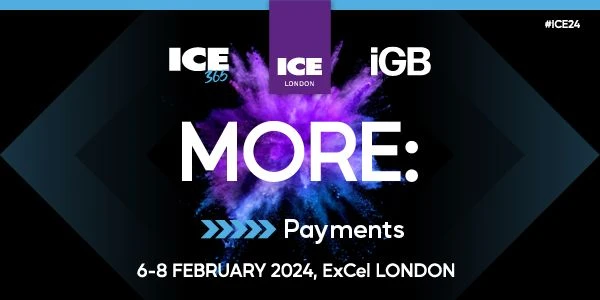Road to ICE 2024: Payments and tech

Payments and tech will undoubtedly be one of the biggest stories of the year as we approach ICE 2024. This year has seen the industry rocked by crippling cyberattacks rolled out on two of the biggest players on the Las Vegas Strip.
Cyberattacks
MGM confirmed it had suffered a cyberattack in September, after it was forced to shut down systems across its US properties. Reports on social media suggested issues with retail slot machines and access to hotel rooms.
In a post on X, formerly known as Twitter, MGM said it was being assisted by cybersecurity experts in investigating the incident. It also confirmed that law enforcement had been notified.

In October, MGM estimated that the attack would have an impact of $100m on adjusted property EBITDAR for Q3.
In its Q3 results, CEO Bill Hornbuckle said MGM had been to “hell and back” as a result of the attack.
Hacker group Scatter Spider took responsibility for the hack. The group threatened more attacks if MGM didn’t meet payment demands.

MGM later confirmed that social security numbers and passport numbers had been compromised for a limited number of players. However, it said it didn’t believe bank account numbers or payment card information was affected.
In the days following the attack on MGM, Caesars Entertainment fell foul to a cyberattack of its own. The attackers gained access to customer data, which included driver’s licences and social security numbers, through Caesars’ loyalty programme database.
The operator also confirmed that there was no evidence of bank account information or PIN numbers being compromised. It’s no exaggeration to say both MGM and Caesars were lucky in this regard.
Unlike MGM, unnamed sources cited in media reports said Caesars had paid tens of millions of dollars in ransom to the attackers.
Artificial intelligence at ICE 2024: how did we get here?
The year was transformative for artificial intelligence (AI) – in more ways than one. Across the industry, operators and businesses alike tested the boundaries of AI and shared those findings with us.

Thomas Holland, product director at Genius Sports wrote a piece for iGB discussing how automation and machine learning are influencing predictive liability-driven pricing. He wrote that operators currently have less control over dynamic price adjustment in relation to betting activity. The answers to solving it will be found in automation.
Russel Karp, senior vice-president of DataArt penned a two-part series about the relationship between AI and sports betting. Part one focused on the challenges AI could pose to sports betting. Part two looked at how the industry can harness the power of AI to enhance sports betting offerings.

Karp highlighted three different types of AI – generative AI, analytical AI and closed options. Generative AI involves creating new content autonomously, while analytical AI identifies patterns in existing data. For a closed option, however, the algorithm is private.
In August, Jean-Pierre Houareau, CEO at Live Solutions spoke to iGB about how the gambling industry can incorporate the best of what AI has to offer. For Live Solutions, this meant producing AI presenters for their casino games. Houareau explained that the AI presenters exist alongside the live hosts, offering operators a different way of communicating with players.

GR8 Tech elevates igaming with GR8 Sportsbook
GR8 Tech celebrated a standout year with the launch of GR8 Sportsbook offer, a major development in the igaming industry. This innovative sportsbook platform features an extensive selection of sports, esports and 24/7 fantasy sports, providing an unparalleled non-stop betting experience. Boasting the capacity to handle over 25,000 daily events, managed by an in-house trading team, it ensures a dynamic and engaging betting environment. Discover the future of online betting with GR8 Sportsbook!
